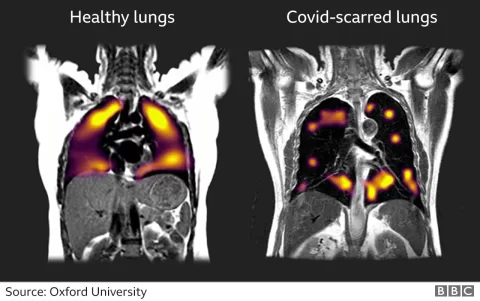Tylenol use in pregnancy has been a topic of considerable debate among healthcare professionals and expectant mothers. Recent studies, including a comprehensive review in the *BMJ*, suggest that there is no significant link between maternal acetaminophen use during pregnancy and developmental issues such as autism or attention deficit hyperactivity disorder (ADHD) in children. This finding comes at a time when concerns, fueled by various public figures, have caused anxiety among pregnant women regarding the safety of this common pain reliever. While the use of acetaminophen—considered safe by numerous health agencies—remains prevalent, understanding the guidelines and implications of its use is crucial for maternal health. This article aims to clarify the risks and benefits of using Tylenol during pregnancy, as well as insights into acetaminophen pregnancy safety and its effects on children, ultimately providing reassurance to mothers-to-be navigating this common dilemma.
The discussion around the use of acetaminophen, commonly known as paracetamol, during gestation raises important questions regarding maternal health and fetal development. This commonly used analgesic has been scrutinized for its potential associations with childhood conditions such as ADHD and autism. Recent reviews highlight the need for clear guidelines, as many expectant mothers seek alternatives to pain relief while worrying about the ramifications of medication on their unborn child. With the prevalence of acetaminophen use, understanding its effects on children and addressing concerns related to maternal health pregnancy practices are vital. As research evolves, it is essential for healthcare providers and families to stay informed about the implications of drug use during this critical period.
Understanding Tylenol Use in Pregnancy
Tylenol, or acetaminophen, is one of the most commonly used medications among pregnant women for pain relief and fever reduction. It’s essential for expectant mothers to understand the implications of using Tylenol during pregnancy. Current guidelines and recommendations from health authorities, such as the American College of Obstetricians and Gynecologists, confirm that acetaminophen is generally considered safe for short-term use in pregnancy. Nonetheless, it’s crucial that pregnant women consult their healthcare providers to discuss individual concerns and circumstances before taking any medication.
Despite recent controversies surrounding Tylenol’s potential links to conditions like autism or ADHD, a comprehensive review published in the *BMJ* has found no evidence supporting these claims. The analysis examined various systematic reviews and highlighted the importance of distinguishing between correlation and causation. While some studies suggested a connection between maternal acetaminophen use and neurodevelopmental disorders, they cautioned that many of these findings could be influenced by confounding factors like genetic predispositions and environmental conditions.
The Acetaminophen Safety Debate
The safety of acetaminophen during pregnancy has become a hot topic of debate among healthcare professionals and researchers. While commonly accepted as a go-to pain relief option for pregnant women, some studies have ignited concerns about its potential risks. However, many health organizations stress that when taken as directed, the benefits of using Tylenol to manage mild to moderate pain and reduce fever typically outweigh the potential risks, especially considering that untreated fevers can pose dangers to fetal development.
Multiple regulatory bodies across the globe, including the FDA and WHO, have reassured the public regarding the safety of acetaminophen in pregnancy. These organizations emphasize that the research linking Tylenol to autism risk often fails to account for confounding variables. Pregnant women are encouraged to rely on well-established guidelines, balancing the need for pain management with the understanding of the existing evidence surrounding acetaminophen safety.
Exploring Tylenol’s Effect on Children
Recent studies have set out to explore the long-term effects of prenatal acetaminophen exposure on child development. While some earlier findings have suggested potential links to developmental disorders like ADHD and autism, these claims have often been met with skepticism by the scientific community due to methodological weaknesses in the studies. For instance, the ability of researchers to control for familial and environmental factors significantly influences the outcomes observed, leading to varied interpretations of the data.
Additionally, Linne2 Slovenia’s systematic review iterated that many existing studies focus solely on correlation without adequately addressing potential confounders. This gap calls for high-quality research to determine if there truly are adverse connections between Tylenol use and child neurodevelopment. Ultimately, healthcare professionals advocate for a cautious approach to medication during pregnancy while also considering the risks of uncontrolled conditions such as fever that may result from avoiding acetaminophen.
Implications of Maternal Health Guidelines
Maternal health guidelines serve as a crucial framework for pregnant women to navigate medication use. Organizations like the Centers for Disease Control and Prevention (CDC) emphasize the importance of making informed choices about medications such as Tylenol. Guidelines suggest discussing any concerns about acetaminophen with healthcare providers, who can offer tailored advice that considers the potential benefits and risks based on individual health profiles.
These guidelines also remind pregnant women that while it’s vital to manage pain and fever effectively, they should avoid self-medicating without proper consultation. Misinformation regarding drug safety can lead to unnecessary fear, and understanding the full context of the research is crucial. Therefore, being guided by well-informed healthcare professionals who are current with ongoing research can empower expecting mothers to make safe decisions during their pregnancy.
Addressing Misconceptions About Tylenol and Autism
Misconceptions surrounding the use of Tylenol during pregnancy have gained traction, especially concerning fears of autism connections. Influential figures and misleading information can exacerbate anxiety among pregnant women, pushing them toward potentially harmful alternatives. It’s essential to clear the air by conveying that leading health organizations have not substantiated the claims linking Tylenol use to autism in children, instead indicating that environmental and genetic factors are far more impactful.
Furthermore, health professionals stress the significance of relying on robust evidence rather than anecdotal claims. The recent BMJ review reinforces the need for more rigorous studies to either fortify or dispel existing concerns about acetaminophen. As research evolves, the focus should remain on informing and educating pregnant women about their choices for pain management without contributing to unnecessary worry.
Alternatives to Acetaminophen: Risks and Benefits
For some pregnant women, concerns about using acetaminophen have led to the exploration of alternative pain relief methods. However, many alternatives, such as non-steroidal anti-inflammatory drugs (NSAIDs), are not only less studied during pregnancy but also associated with distinct risks. Evidence suggests that these medications may adversely affect fetal development, particularly regarding the fetal vascular system, potentially leading to more significant complications than acetaminophen might pose.
Consequently, health experts reiterate that while alternatives exist, acetaminophen remains the safest first-line option for managing pain during pregnancy. The key is to assess both the immediate relief and the potential long-term effects accurately. Pregnant women should engage in discussions with their healthcare providers to scrutinize the risks and benefits of all pain relief methods available to ensure both their health and their baby’s well-being.
Research Gaps on Acetaminophen Exposure
While the current literature surrounding acetaminophen use in pregnancy provides essential insights, notable gaps remain. Many existing studies rely on self-reported data, which can introduce biases and inaccuracies regarding medication use. Additionally, the complexities of familial factors often complicate the ability to draw clear conclusions from the research, underscoring the need for more rigorous, longitudinal studies that examine the effects of Tylenol exposure in utero on long-term child development.
The urgency for high-quality research becomes evident as healthcare providers seek to base recommendations on solid evidence. By addressing these gaps, future studies can offer clearer insights regarding the safety and potential risks of acetaminophen during pregnancy, ultimately improving maternal healthcare guidelines and strengthening support for pregnant women navigating this challenging period.
The Connection Between Maternal Health and Child Development
Maternal health during pregnancy is a critical factor influencing child development outcomes. A myriad of conditions and exposures contribute to an infant’s health postnatally, making it essential for expecting mothers to prioritize their well-being throughout their pregnancy journey. Alongside taking precautions regarding medication, other health factors like maternal mental health and lifestyle decisions also play significant roles in shaping a child’s developmental trajectory.
As researchers continue to investigate the complexities of how maternal health impacts child outcomes, it becomes increasingly apparent that a holistic approach is necessary. Supporting mental and physical health for mothers during pregnancy can potentially mitigate many risk factors associated with conditions like ADHD and autism. Therefore, healthcare providers must adopt an encompassing approach, focusing not just on medication guidelines but also on maternal support systems.
Conclusion: A Balanced Perspective on Tylenol Use
In conclusion, Tylenol’s role during pregnancy is multifaceted, and it’s critical to maintain a balanced perspective amid evolving research findings. While recent reviews have highlighted the lack of definitive links between acetaminophen use and neurodevelopmental disorders, the conversation should remain rooted in ongoing education and informed decision-making. Pregnant women must ensure they are well-informed about their options for pain management and potential risks associated with any medication.
Ultimately, the review emphasizes that the current evidence does not support significant concerns regarding the use of Tylenol for pain relief during pregnancy. As the healthcare landscape continues to evolve, emphasizing research integrity and maternal health guidelines is essential. Health professionals should remain vigilant in providing support and accurate information to help mothers navigate the complexities of medication use during this crucial phase of life.
Frequently Asked Questions
Is Tylenol (acetaminophen) safe to use during pregnancy?
Research, including a recent umbrella review published in *BMJ*, indicates that Tylenol (acetaminophen) is generally considered safe for use during pregnancy. Regulatory health agencies reassure that it poses no significant risks of autism or ADHD in children when used as directed.
What do studies say about acetaminophen pregnancy safety?
Recent studies confirm acetaminophen pregnancy safety, asserting that there is no established link between maternal use of Tylenol and increased risks of autism or ADHD in offspring. However, it’s advised that pregnant women consult their healthcare providers for personalized guidance.
Is there a connection between Tylenol use in pregnancy and autism?
An extensive review found no conclusive evidence linking Tylenol use during pregnancy to autism in children. Although some studies suggested a potential association, many emphasized the importance of controlling for familial factors in their analyses.
Can acetaminophen during pregnancy affect a child’s neurodevelopment?
While some reviews indicated potential connections between acetaminophen use in pregnancy and neurodevelopmental issues, the overall findings suggest these links may be significantly impacted by familial characteristics and other confounding factors, rather than acetaminophen itself.
What are the maternal health pregnancy guidelines for acetaminophen use?
Maternal health pregnancy guidelines generally recommend acetaminophen as a safe option for treating pain and fever during pregnancy. However, it’s essential for expecting mothers to follow advice from healthcare providers and weigh the benefits of acetaminophen against potential risks from alternative medications.
What are the potential risks of not using Tylenol during pregnancy?
For avoiding Tylenol during pregnancy, there are risks, such as uncontrolled pain or fever, which can adversely affect pregnancy outcomes. The current consensus is that when used responsibly, Tylenol is a safer choice compared to other pain relievers.
How does Tylenol use in pregnancy relate to ADHD?
Studies reviewing the relationship between Tylenol use in pregnancy and ADHD conclude that while some associations have been noted, high-quality analyses indicate that these connections may be due to confounding factors, not a direct effect of acetaminophen.
| Key Point | Details |
|---|---|
| Study Findings | No link between maternal acetaminophen use during pregnancy and autism or ADHD. |
| Research Overview | The study reviewed nine systematic reviews covering studies published in the last 10 years. |
| Public Concerns | Former President Trump warned against acetaminophen use; raised concerns among pregnant women. |
| Feedback from Health Agencies | Regulatory bodies support acetaminophen safety during pregnancy, noting risks of untreated fever. |
| Bias and Study Quality | Many reviews showed significant bias and confounding factors. Limited confidence in findings. |
| Recommendations | Continued use of acetaminophen is advised to manage fever and pain during pregnancy. |
| Need for Further Research | High-quality studies are necessary to assess the effects of acetaminophen on child neurodevelopment. |
Summary
Tylenol use in pregnancy is a topic of significant public interest, especially concerning its alleged associations with autism and ADHD in children. Recent comprehensive reviews have shown no credible evidence linking maternal acetaminophen use during pregnancy to these developmental disorders. Despite some public concerns sparked by prominent figures, health authorities affirm that managing pain and fever with Tylenol is safe for pregnant women. However, the potentially flawed data and biases in existing studies highlight the need for more robust research to clarify any true risks. Therefore, women should feel reassured about the safety of Tylenol use in pregnancy while remaining informed about the evolving research.
The content provided on this blog (e.g., symptom descriptions, health tips, or general advice) is for informational purposes only and is not a substitute for professional medical advice, diagnosis, or treatment. Always seek the guidance of your physician or other qualified healthcare provider with any questions you may have regarding a medical condition. Never disregard professional medical advice or delay seeking it because of something you have read on this website. If you believe you may have a medical emergency, call your doctor or emergency services immediately. Reliance on any information provided by this blog is solely at your own risk.








